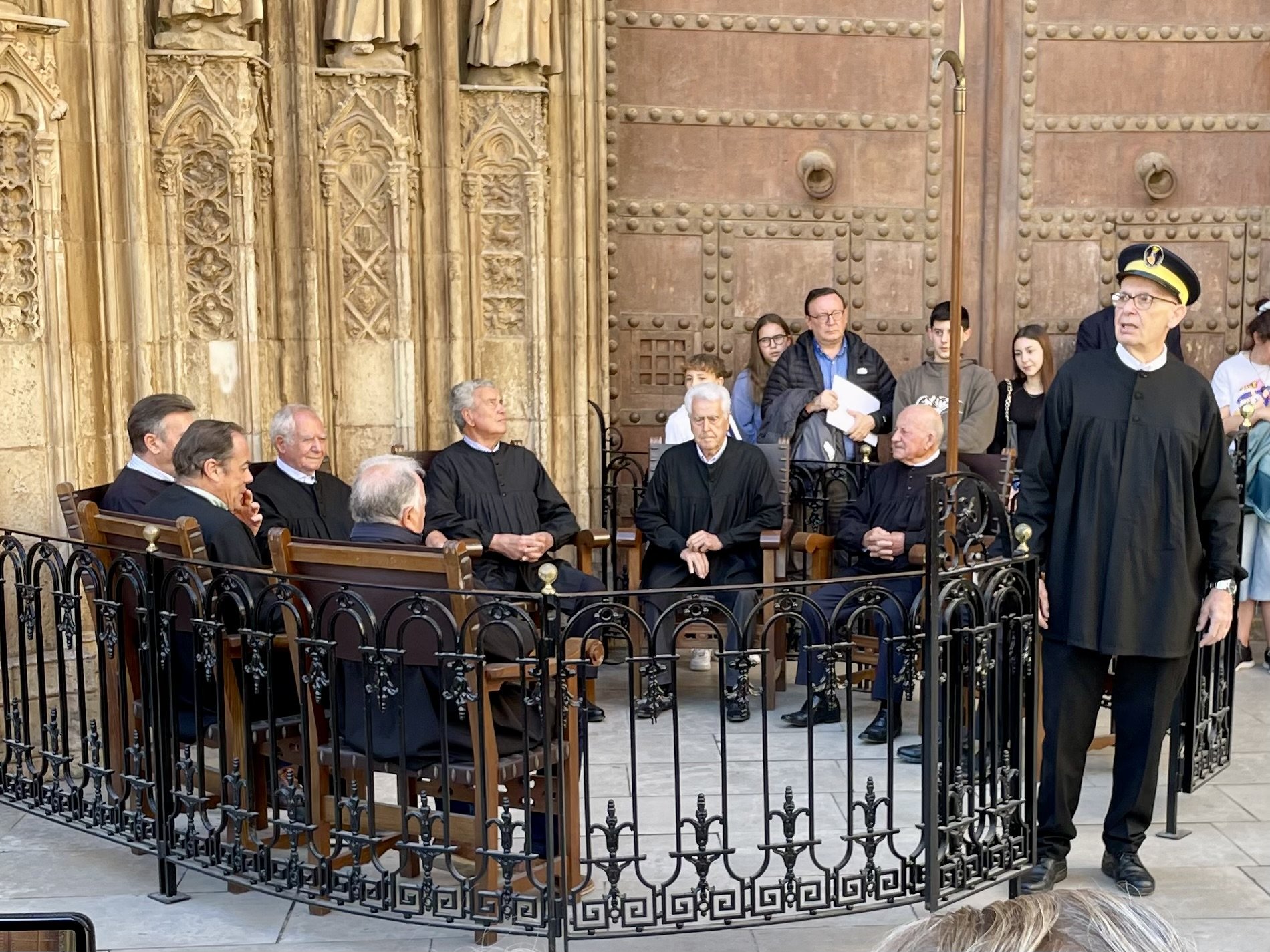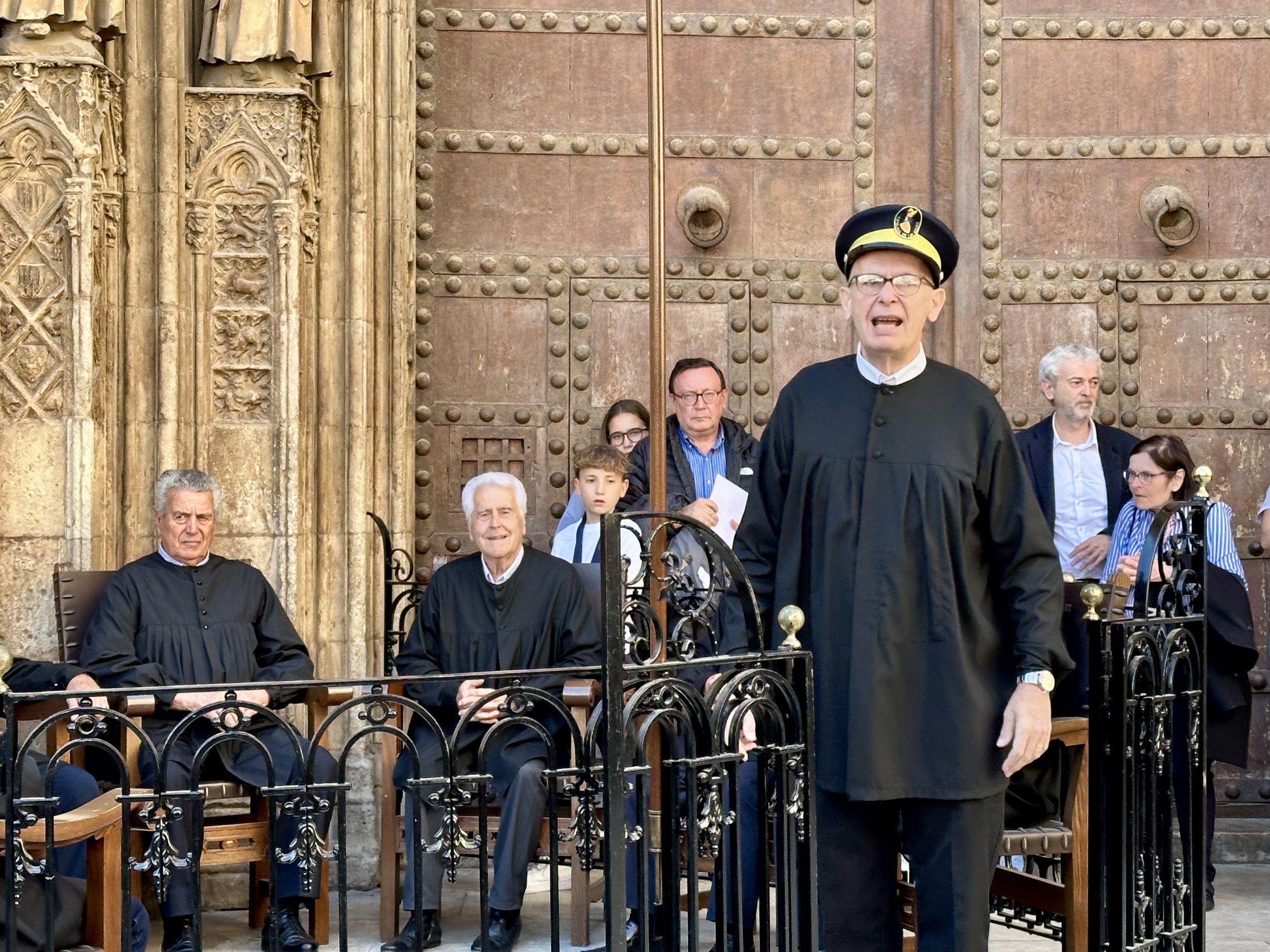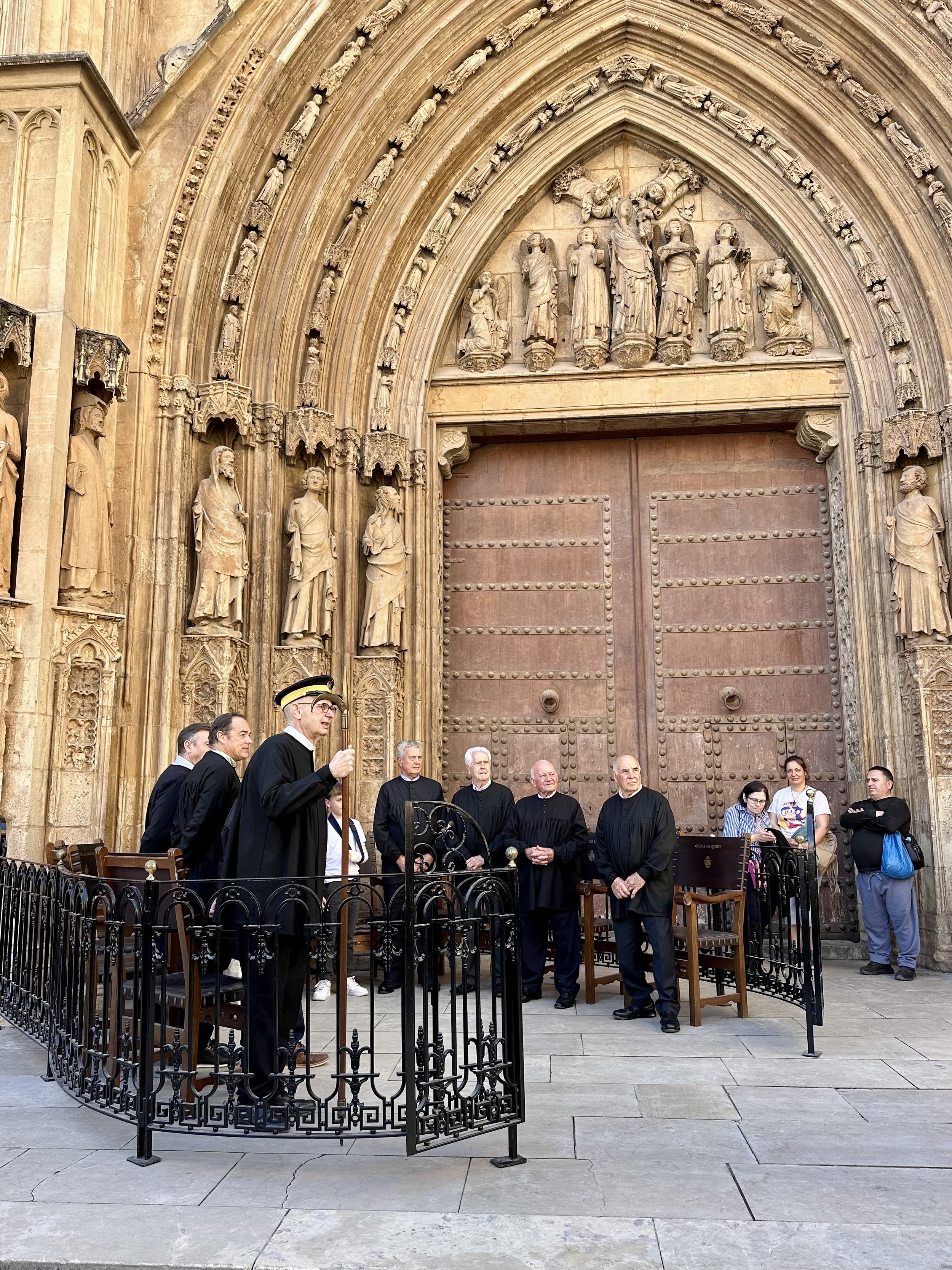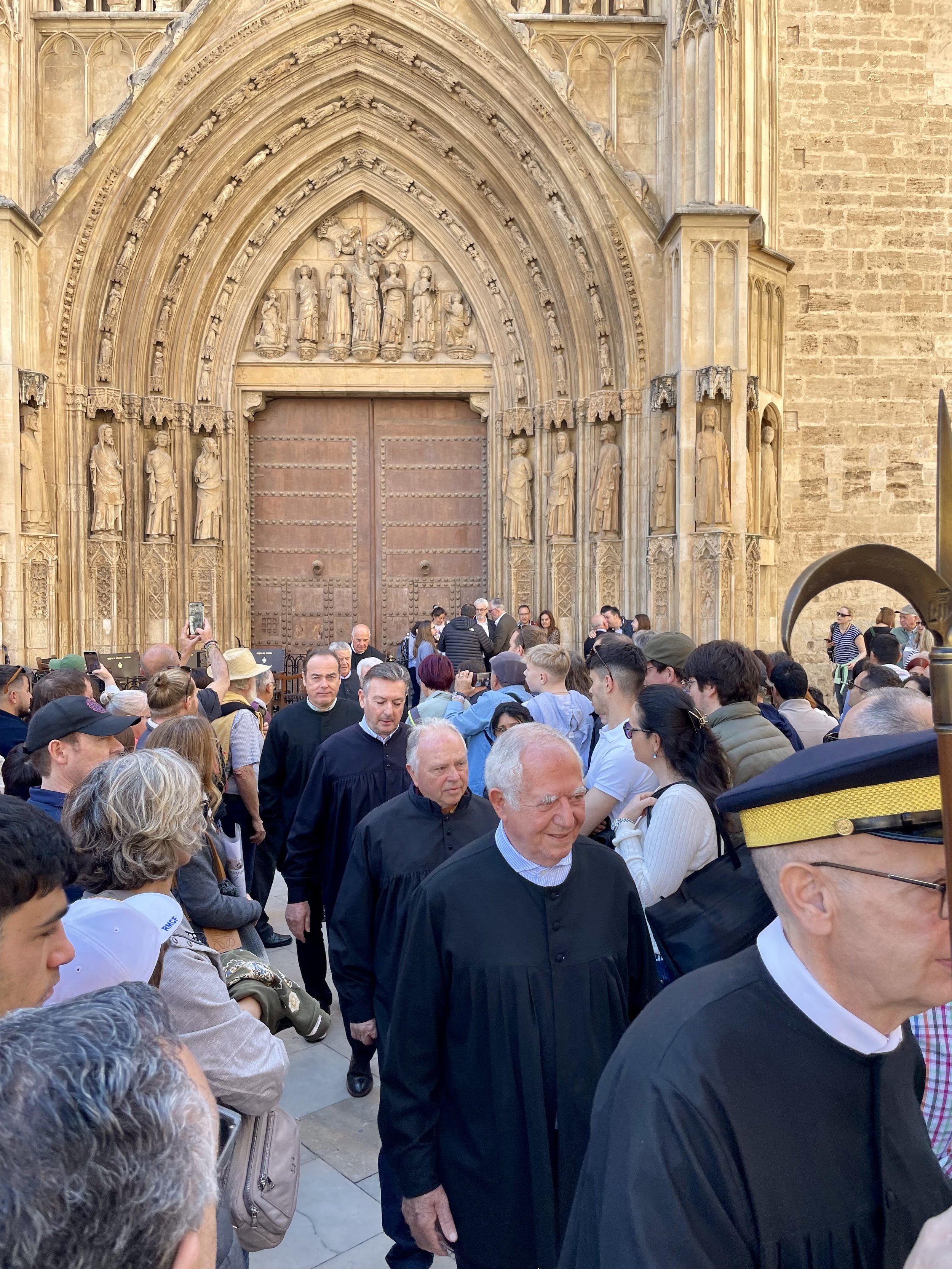The Water Tribunal
Every Thursday at noon, the Tribunal de les Aigües de València (Water Tribunal of Valencia) holds session, in the heart of Valencia’s historic center. The Water Tribunal has been settling water disputes between farmers since the year 960 CE, which makes it (reportedly) the oldest court in the world.
The Iberian Peninsula was a Muslim caliphate during the 10th century, an era known for peace, religious tolerance, and economic growth. A complex network of acequias (canals) and sluice gates was constructed to supply Valencia’s farms with water from the Turia River. The Tribunal was established to ensure the equitable distribution of water to every canal. The Tribunal members are local farmers elected to represent the eight Irrigation Communities - a democratic body that is still imparting justice after more than one thousand years!
By 11:30am, a crowd had already gathered at the Apostle’s Gate of Valencia Cathedral. At noon, the syndics (representatives), wearing black robes, processed from the Casa Vestuario to the Apostle’s Gate and took their seats. The bailiff called for cases from each of the communities, announcing each name twice. There were no cases, so there was no discussion or deliberation, and it was all over in just a few minutes.





A reservoir was built nearby in 1955, stabilizing the water supply, and due to urban development, many water channels and farms are now gone. Does a court still need to meet every week when there are fewer and fewer cases to be heard? It will be interesting to see how this age-old institution evolves to stay relevant. The Water Tribunal of Valencia is a UNESCO Intangible Cultural Heritage.
Fun Facts
The Tribunal de les Aigües is mentioned on 2nd century Roman stone tablets.
The Tribunal has always met on Thursday because that was when Muslim farmers would visit the markets (the day before Friday prayer).
Meetings originally took place inside the mosque; later, they were relocated to just outside the doors of the cathedral, as most farmers were Muslim and could not enter the church.
The bailiff carries a brass harpoon, a tool historically used to move the wooden sluice gates that controlled the flow of water in the irrigation canals.
Common violations include water theft, damage to irrigation channels, watering fields out of turn, and clogged drains. The punishment is usually a fine.
All business is conducted orally in the Valencian language; nothing is written down. All decisions are final!
Sources: 24/7 Valencia.com, tribunaldelasaguas.org
